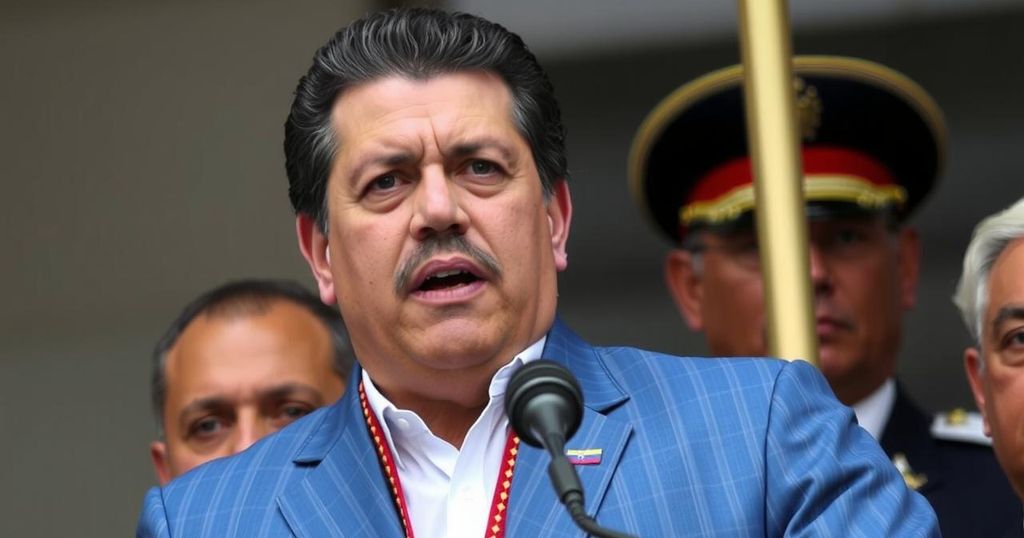Venezuelan President Nicolás Maduro is set to be sworn in for another term amidst allegations of electoral fraud and protests demanding the swearing-in of opposition leader Edmundo González. Despite government claims of victory, independent observers have raised serious questions about the election results, leading to widespread unrest and detentions of opposition figures, most notably María Corina Machado.
President Nicolás Maduro is poised to extend his controversial governance in Venezuela for another term, officially commencing on Friday, January 15, 2024, despite widespread skepticism about the legitimacy of the recent elections. Opposition leader María Corina Machado, who has been barred from competing, rallied supporters in Caracas calling for her ally Edmundo González to be sworn in as president instead of Maduro. Reports indicate that Machado was briefly detained by security forces during these protests, which led to a significant backlash against the Maduro administration. Following an election marred by allegations of fraud, Maduro’s government has faced international scrutiny and denouncement, as electoral authorities declared him the victor without disclosing detailed vote counts. This situation is compounded by claims from independent observers that opposition candidates had collected compelling evidence demonstrating their electoral success, heightening tensions within the country.
The heightened unrest following the election results saw over 2,000 individuals arrested, with at least 20 fatalities reported during protests. Amidst this scenario, international leaders have condemned the government’s maneuvers to stifle dissent, urging for the immediate release of detained opposition figures, including Machado. The turmoil surrounding the inauguration has decreased enthusiasm among international democracies regarding participation, with notable absences expected. Additionally, Edmundo González’s safety remains uncertain as he contemplates his return to Venezuela, where government officials have threatened his arrest.
The political climate in Venezuela has been exacerbated by the long-standing rule of President Nicolás Maduro, who has faced growing dissent over the integrity of electoral processes. The opposition, significantly weakened by governmental restrictions, continues to rally for greater transparency and accountability. Recent elections sparked allegations of fraud as Maduro was declared the winner without adequate substantiation from electoral bodies. This has resulted in increased international pressure on the Venezuelan government, as human rights violations and suppression of political freedom have characterized the current administration. Recent protests indicate a potent civil discontent, driven by questionable electoral outcomes and the broader issue of governance under Maduro’s regime. The involvement of figures like María Corina Machado has galvanized opposition support but has also subjected her to government retribution aimed at suppressing dissent. The current political crisis reflects larger systemic issues within Venezuela and poses inherent challenges to the prospects of a democratic transition in the near future.
In summary, President Nicolás Maduro’s upcoming swearing-in ceremony is set amidst a backdrop of significant controversy and civil unrest. With substantial evidence presented by the opposition casting doubt on the election results, the legitimacy of Maduro’s presidency remains in question. The situation exemplifies a broader struggle for democracy and human rights in Venezuela, as international figures call for accountability and the release of detained opposition leaders. The global community watches with concern as internal conflict escalates, and the future of Venezuela hangs in the balance.
Original Source: abcnews.go.com






